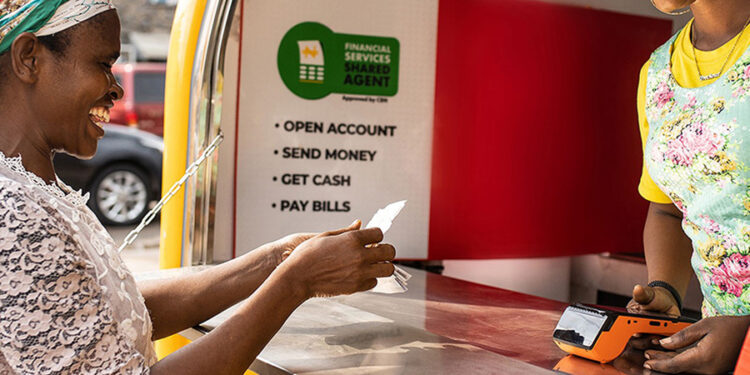adverts
The World Bank’s Global Findex 2025 report has revealed a historic rise in formal savings across developing economies, driven largely by the widespread adoption of mobile money services.
According to the report, 40% of adults in these regions saved money using formal financial channels—banks, fintech platforms, or mobile money accounts—in 2024, marking a 16-percentage-point jump from 2021 and the fastest growth recorded in over a decade.
Sub-Saharan Africa, long considered a global leader in mobile financial services, saw formal savings rates rise by 12 percentage points to 35%. This leap is largely attributed to the continent’s deepening mobile money ecosystem, where digital wallets have become essential tools for everyday transactions, savings, and even investment.
adverts
“The biggest driver of this financial inclusion boom is mobile-phone technology,” the World Bank stated. In developing economies, 10% of adults now save via mobile money—a doubling from 5% in 2021—fuelled by growing smartphone penetration and internet access.
World Bank President Ajay Banga hailed the trend as a powerful opportunity. “Digital finance can convert this potential into reality,” he said. He emphasised the Bank’s ongoing support to countries in strengthening digital identification systems, modernising payment infrastructure, and creating enabling regulatory frameworks to ensure that digital financial services reach more people safely.
The Global Findex, often regarded as the gold standard of financial access measurement, found that nearly 80% of adults worldwide now own a financial account, compared to just 50% in 2011. However, about 1.3 billion people remain unbanked—although 900 million of them own mobile phones, including over 450 million with smartphones.
One of the most encouraging shifts noted in the report is the significant narrowing of the gender gap in financial inclusion. In low- and middle-income countries, women’s account ownership rose from 37% in 2011 to 73% in 2024.
Yet, digital finance also brings rising concerns around security. Among the 4 billion mobile phone users in developing economies, only half use passwords to secure their devices, raising the risk of fraud, data breaches, and identity theft.
“More people than ever have the financial tools to invest in their futures. This is real progress. But there’s still work to be done to make systems safer and more inclusive,” said Bill Gates, Chair of the Gates Foundation, a key supporter of the Global Findex initiative.
The report also highlights a broader digital transformation. In 2024, 42% of adults in low- and middle-income countries made a digital payment to a merchant, compared to 35% in 2021. More governments and employers are also abandoning cash, with 75% of public payments and 50% of wages now deposited directly into bank or mobile money accounts—a move that has improved efficiency and transparency.
Regionally, account ownership in Sub-Saharan Africa rose to 58%, up from 49% in 2021, while South Asia reached 80%, buoyed by India’s rapid expansion in digital infrastructure. The Middle East and North Africa recorded growth from 45% to 53% in account ownership, with formal savings increasing from 11% to 17%.
In East Asia and the Pacific, smartphone and account ownership stood at 86% and 83%, respectively. Latin America and the Caribbean also made strides, with 70% of adults owning accounts and over half using mobile or card-based digital payments.
The report pays particular attention to Nigeria, where mobile money operators such as PalmPay, OPay, and Paga are expanding access across both urban and rural regions.
According to the Nigeria Inter-Bank Settlement Systems (NIBSS), licensed mobile money operators in the country processed $47.7 billion worth of transactions in 2024, up 53.4% from $31.1 billion in 2023.
Click the link Puretvonline.com | WhatsApp Channel to join the WhatsApp channel
GOT A STORY?
Contact/WhatsApp: +233243201960 or Email: manuelnkansah33@gmail.com


